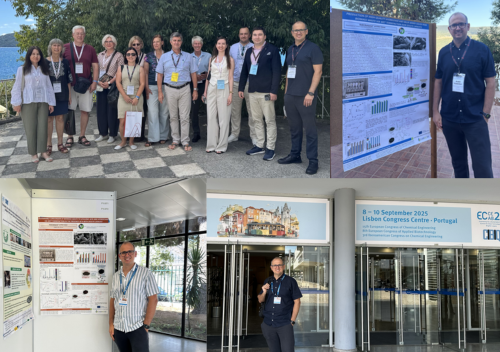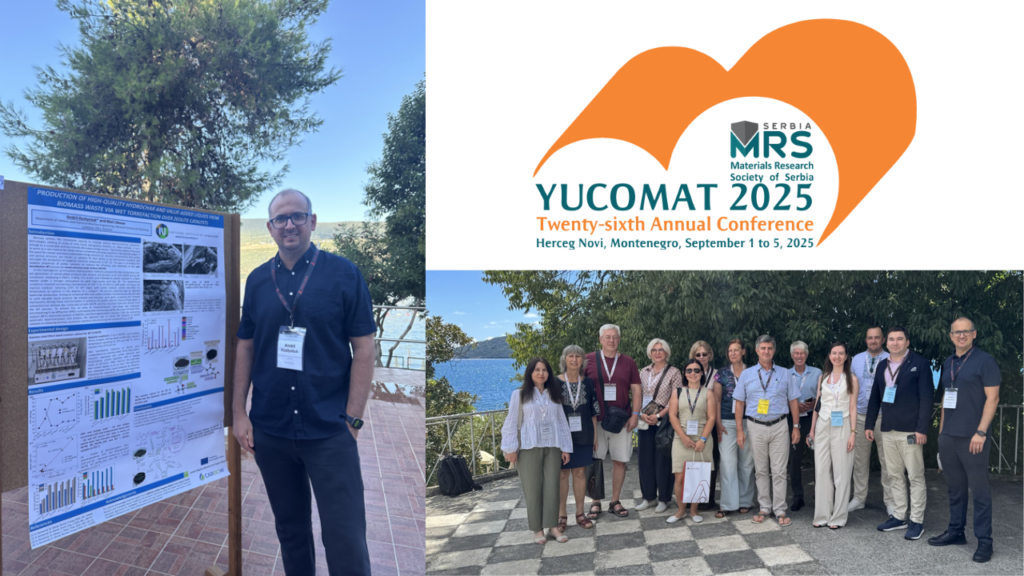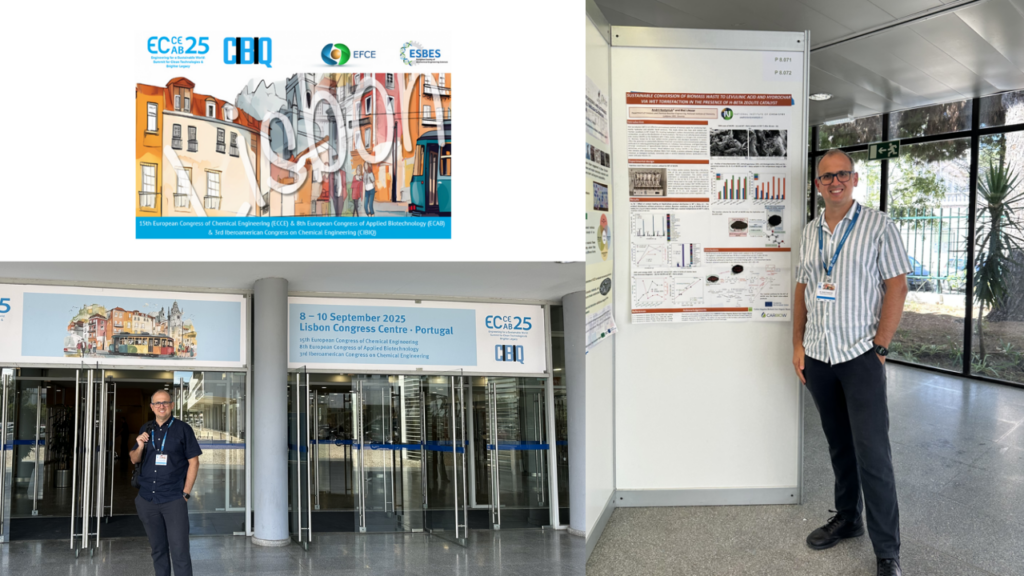
September has been a busy month for our colleagues at the Kemijski inštitut, who have been attending various industry meetings and stakeholder gatherings to share their interesting findings regarding the CARBIOW project.
From 1 to 5 September, the 26th edition of the Annual Conference on Material Science (YUCOMAT) took place in Herceg Novi, Montenegro. During this conference, our colleague Andrii Kostyniuk from Kemijski Inštitut – National Institute of Chemistry, presented a poster entitled “Production of high-quality hydrochar and value-added liquids from biomass waste via wet torrefaction over zeolite catalysts.”

The Yugoslav Materials Research Society (Yu-MRS), a non-government and non-profit scientific association, was founded in 1997 to promote multidisciplinary goal-oriented research in materials science and engineering. The main task and objective of the Society is to encourage creativity in materials research and engineering to reach a harmonious coordination between achievements in this field in Serbia and analogous activities in the world, with an aim to include the country in global international projects. Until 2003, Conferences were held every second year, and then they grew into Annual Conferences, traditionally held in Herceg Novi in September of every year. In 2007, Yu-MRS formed two new MRS: MRS-Serbia (official successor of Yu-MRS) and MRS-Montenegro (in founding). In 2008, MRS – Serbia became a member of FEMS (Federation of European Materials Societies).
Meanwhile, from 8 to 10 September, 15th European Congress of Chemical Engineering (ECCE) & 8th European Congress of Applied Biotechnology (ECAB) & 3rd Iberoamerican Congress on Chemical Engineering (CIBIQ) were held simultaneously in Lisbon, Portugal. Within the ECCE and ECAB, Andrii Kostyniuk, Research Assistant Professor at Kemijski Inštitut, presented a poster entitled “Sustainable conversion of biomass waste to levulinic acid and hydrochar via wet torrefaction in the presence of H-Beta zeolite catalyst.”

Chemical engineering, biotechnology and bioprocessing are the key to providing innovative solutions for food supply, mobility, energy, health and well-being while striving for a sustainable economy. At ECCE 15 & ECAB 8, scientists from industry, universities and research institutions from Europe and beyond met in Lisbon to discuss the latest research and industrial applications in all fields of chemistry, process engineering, biotechnology and related fields.
This year’s conference was held in conjunction with the 3rd CIBIQ – Iberoamerican Congress on Chemical Engineering. The CIBIQ congresses were born with the goal and the spirit of building bridges within the Ibero- American, chemical engineering community to join forces, to work as a team, to share experiences, and to attain even higher goals for the benefit of the Society that we serve.
The conferences united chemical and process engineers, biotechnologists, bioprocess experts, chemists, material scientists and related disciplines with a focus on applied research and development.